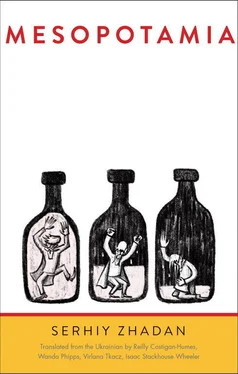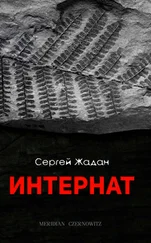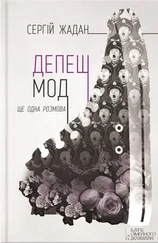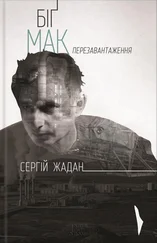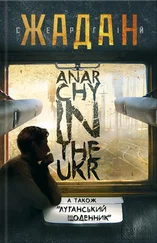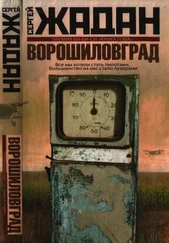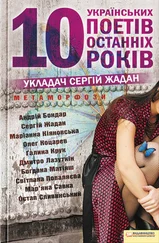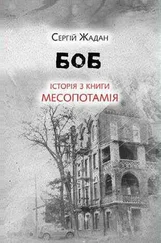“Do we need to get him a gift or anything?” I asked, without letting go of her.
“A gift? Like what?” she answered, clearly surprised.
“Flowers or something like that.”
“You might as well buy him a wreath. We’ll pick up some wine at the store by the station,” she added in a conciliatory tone, pushing me back like she was propelling herself off the side of a pool.
She chose her seat in the half-empty train car, on the sunny side, facing the direction it was moving. She sat down and watched as we rolled out of the station, leaving the last of the city’s seemingly endless chemical tanks behind; the greenery of its streets and parks blotted out its brick buildings, the leafy horizon suddenly burst out from behind factory fences, the suburbs cropped up, more stations popped into view, and passengers—fishermen, secondhand dealers, and people heading to their cottages—were milling around out there, exposed to the afternoon sun. The train pushed forward, past pine trees, quietly, as though it was afraid of attracting someone’s attention, freezing momentarily at railroad crossings and making longer stops at sand embankments. She wasn’t saying anything. I couldn’t quite remember where we’d left off or decide how to go about resuming our ongoing conversation. We passed some lakes and wove in between some clusters of cottages. A forest came into view through the window; the sky was generously heaped with low-hanging clouds. Then suddenly there was so much sky—it was everywhere. “Man, August is almost over, time flies,” I thought.
The train stopped; we stepped out onto the platform. It was quiet; wide, slanted rays of sunlight tinted the air gold, making it difficult to see things as they really were. It was three o’clock in the afternoon. There wasn’t a living soul in sight. Just the right time to pay a ceremonious visit to the dead. We picked up some boxed wine at the store by the station and headed down a sandy path along the tracks. She was walking up ahead, although she didn’t know the way. Her gait had changed—she mostly looked down at her feet, as though she was afraid of going off course. This went on for quite a while. She stopped to rest a few times. A pebble got in her sneaker once; she leaned on my shoulder, hopping on one leg, laughing and shaking it out. We reached the village; I asked for directions, and we started looking for Luke’s place. The road deposited us right beside a riverbank, a little below a confluence, and the current looked like marble—light veins crisscrossed with dusky ones and murky water with clear. We were completely lost at this point; it was time to ask for directions again; she took out her cell and called someone.
“Well,” she said, pointing at the house across from us. “This is it.”
It was behind some old trees; you couldn’t even see it from the road. There was a fence, there were a lot of flowers, there was silence. We opened the gate and walked across the yard. It seemed like Luke hadn’t been neglecting it; his lawnmower was clearly still seeing plenty of use. The yard looked like a soccer field—admittedly, one nobody was permitted to play on. The house wasn’t too big; it looked like it had been assembled from disparate parts—decent-looking window frames and doors lugged there from somewhere else. Red-brick foundation, speckled with white. Wooden beams and metal fasteners. It was as though somebody had knocked down a few buildings and assembled them into a single new one, and not a great one, either. She walked over to the door and pulled, but it wouldn’t open. She knocked. I peered in through the window. There was a bed by the wall and an empty table covered with tissue paper by the window. An apple fell off a tree, its descent heavy and steady. We looked around. There he stood, looking back at us, not saying anything. His face was more wrinkly now, and he’d apparently trimmed his own beard. A dark green shirt with the sleeves rolled up to his elbows, battle-scarred jeans, worn at the knees, sneakers fissured by constant walking. Puffy eyes, bitten lips. Black hands, long fingers, yellowed nails. Skin the color of dry clay. Sixty years behind him. Death and dissolution up ahead. It was four o’clock now. There wasn’t much sun left for us today.
Twenty years ago, he didn’t have that beard, and he had dramatically fewer wrinkles. His hands were the same, though—darkened by hours of labor, paint under the nails, palms all cut up, and veins bulging with tension. It looked like he’d been finger painting. Not much else about him had changed—always in jeans, even at gallery openings and formal events, always in sneakers, always standing behind you, as if to say, “I’ve got your back if you fall.” He was young and belligerent twenty years ago, not afraid of anyone and never asking anyone for any favors. He didn’t seem to be afraid of anyone now, either… but nobody was afraid of him now, either. Back then, twenty years ago, he was a force to be reckoned with; there was just no ignoring him. In the eighties, he worked at a children’s center in some basement downtown. He taught kids how to draw. The nineties were tough economically, but kids still wanted to draw, so he kept teaching them. The center was shut down toward the end of the decade; he’d been out of work since then, and he seemed to be doing just dandy. Everybody in town knew him. He had a ton of friends. Even the cops got along with him. He had a lot of lovers, too. I personally knew a few of them. They brought him food and fresh clothes when he was working in his studio. They’d clean his shoes and console each other whenever he left town without a word to anybody. His son from his first marriage had his own business, always looked nice, and really loved his dad. Luke didn’t put his art in any shows, but everyone had a couple of his pieces hanging up at home. He’d spent the last couple of years building that house. He bought somebody’s orchard and nested between its trees. His son helped and offered to build him a regular house; he even offered to pay for everything, but Luke turned him down, saying he wanted to do it all himself. Some friends helped him out anyway; sometimes his son would come and move bricks for him—he’d turn his phone off for the weekend so nobody would bother him. Luke was in no hurry; he seemed to like the process of building something. Last year, his son brought in a construction crew and they finished the job in a month. In the spring, Luke decided he was going to live there, or, more precisely, die there.
“Luke!” she shouted, and rushed toward him.
He chuckled in response as she wrapped her arms around his neck, hanging on him. I followed her inside. He lowered her onto the floor and hugged me too.
“You’re the first ones here,” he said, still laughing. “Hope you’re not the last ones, though.”
We weren’t the last ones, that’s for sure. His son pulled up in his Jeep, packed to the brim with food. He brought Luke a tiny children’s tape player and loaded it up with batteries so his old man could listen to his favorite music no matter where he wound up—like a hospital bed, just for instance. He brought two of Luke’s old friends along with him—Zurab, the blind-as-a-bat old-timer who’d lived with Luke in a communal apartment on Revolution Street, and Sasha, a tall, skinny guy who’d commissioned Luke to decorate some public cafeterias way back in the eighties. It seemed like Zurab didn’t really know where he was, but he greeted Luke courteously, giving him a long, firm handshake, patting him on the back, and even shedding one rugged tear from one half-blind eye. Sasha was a lean guy sporting a military haircut, his signature thin graying mustache, and a jacket, black like that of a chimney sweep. He knew exactly what was going on, so he tried to keep his feelings and need to show compassion in check, hugging Luke and Zurab and jabbering away about something or other.
Читать дальше
